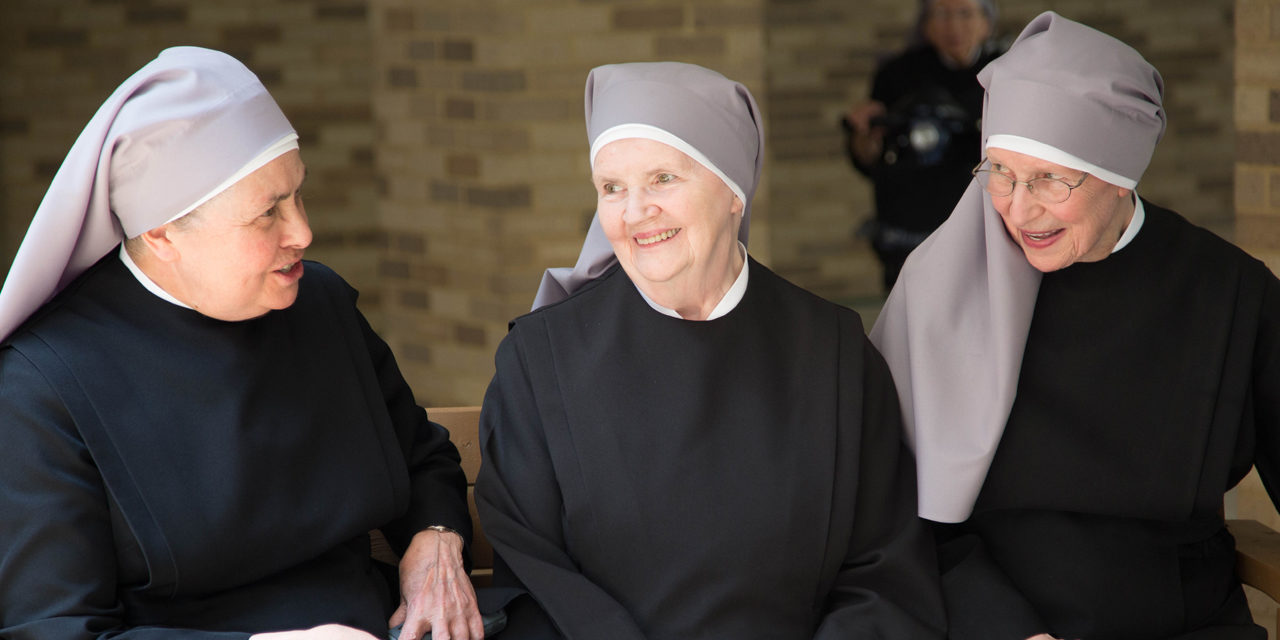The U.S. Supreme Court today heard oral arguments via telephone in two related cases, Little Sisters of the Poor v. Pennsylvania and Trump v. Pennsylvania, which involve yet more legal drama in the almost 10-year battle over whether a group of nuns must provide contraceptives, including possible abortifacients, to their employees via employer-provided health plans. A transcript of the arguments is also available.
The Little Sisters of the Poor have become a well-recognized symbol of (as well as a litigant in) the “endless war” between religious freedom and government encroachments dealing with abortion and contraception. In this case, the flashpoint involves an Obama-era Department of Health and Human Services regulation (HHS mandate) created in the aftermath of the passage of the Affordable Care Act, aka Obamacare, in 2010, and the Trump Administration’s efforts to correct the conscience issues which threatened the very existence of nonprofit religious entities who objected to that mandate.
Of course, the Little Sisters were not the only ones who sued the federal government over the HHS mandate. The Hobby Lobby case from 2014 decided the question whether for-profit companies run by a small group of owners, like Hobby Lobby’s Green family, were entitled to claim and receive a religious exemption from the mandate’s requirements. The Supreme Court decided they were. The Little Sisters of the Poor, on the other hand, were among dozens of nonprofit religious entities whose claims went to court after the Hobby Lobby decision and dealt with a different but equally troublesome provision of the mandate over how to obtain a religious exemption if the organization was something other than a church.
In the first round of litigation, the Little Sisters opposed the Obama-era mandate’s requirement that they in effect be complicit in immorality via the legal steps the law required them to follow in order to obtain an accommodation of their religious conscience. That ended with an unusual Supreme Court decision that voided the negative court decisions against the Little Sisters without actually deciding anything of a permanent nature.
But today the nuns supported the Trump Administration’s 2017 attempt to rectify that original overreach by having the Department of Health and Human Services issue new, broader religious exemption regulations.
Pennsylvania and New Jersey were among a number of blue states around the country that immediately sued to block the implementation of the 2017 conscience rules and were successful in obtaining a nationwide injunction against the rules going into effect. The Pennsylvania and New Jersey cases were paired together for argument at the Supreme Court today.
Because of the COVID-19 pandemic, the Supreme Court heard the parties’ arguments by telephone, which – beginning this week – were available in real time to anyone who wanted to listen in. In the past, recordings of the arguments were released shortly after the arguments.
The use of the telephone created obvious changes in the way the Supreme Court normally conducts oral arguments. Rather than justices constantly interrupting each other and the lawyers trying to answer questions, Chief Justice John Roberts called upon each justice in turn to ask a few questions of the attorneys without interruption. The orderly flow of the questions and responses made for easier listening and gave the lawyers a better opportunity to develop their arguments for the justices.
The Becket Fund for Religious Liberty has represented the Little Sisters throughout this litigation. Mark Rienzi, Becket’s President, issued this statement about this case:
“The Court has ruled in the Little Sister’s favor twice before, recognizing what was obvious from the very beginning—that the federal government doesn’t need nuns to help it distribute contraceptives and that forcing them to participate is plainly unconstitutional. We hope that the Supreme Court ends this litigation once and for all.”
A decision is expected next month.
Photo from Becket Law






